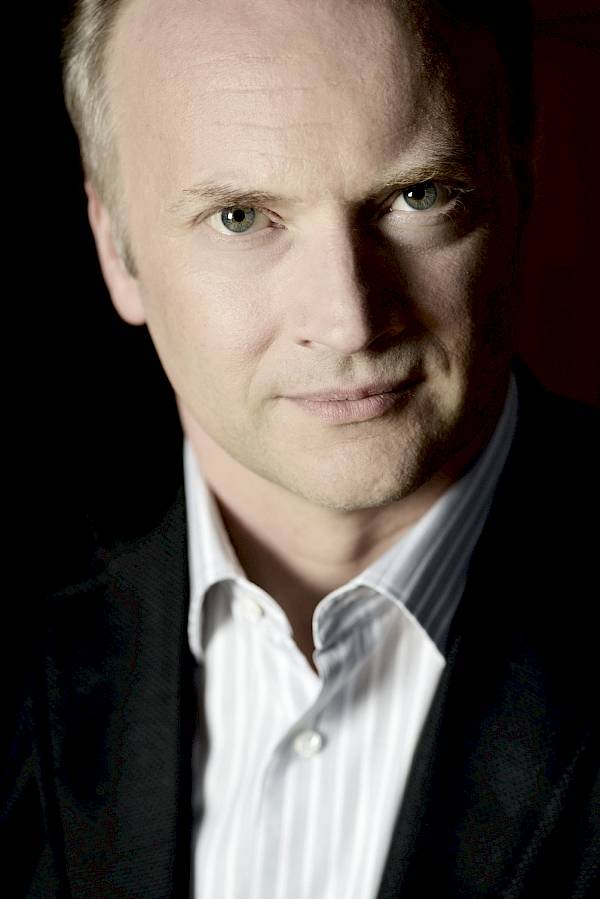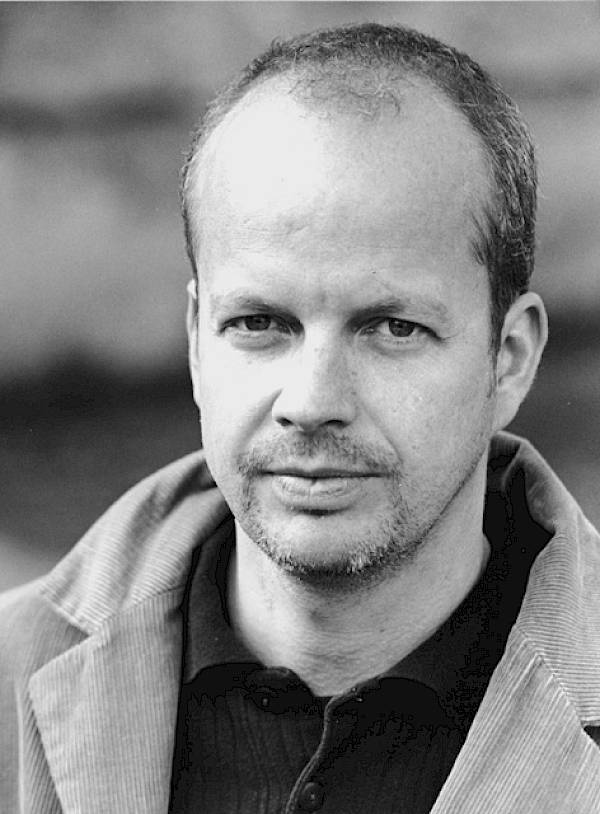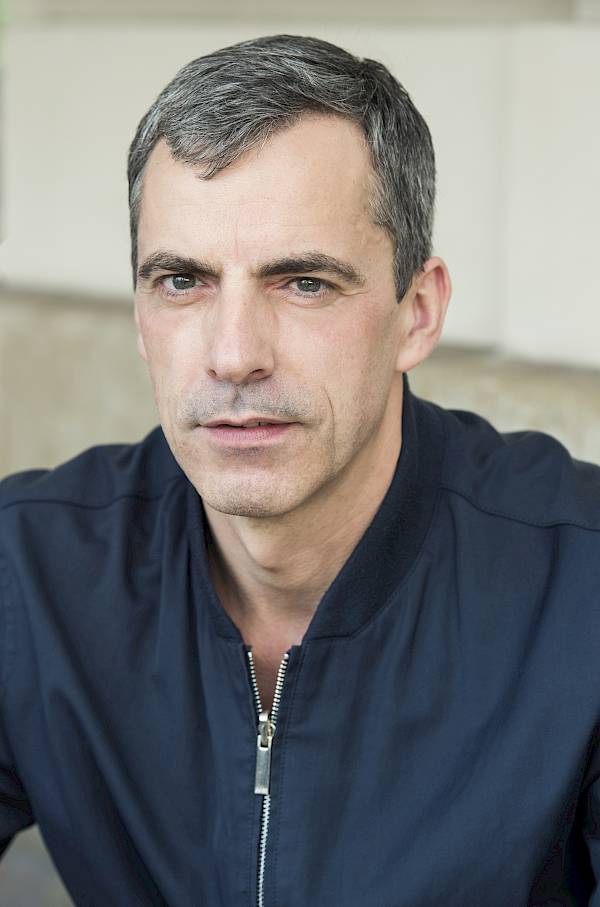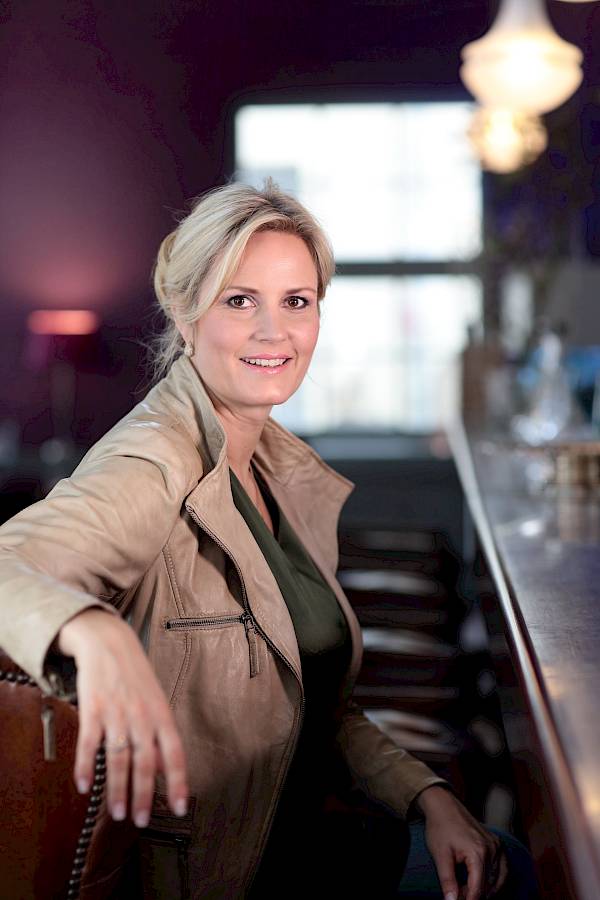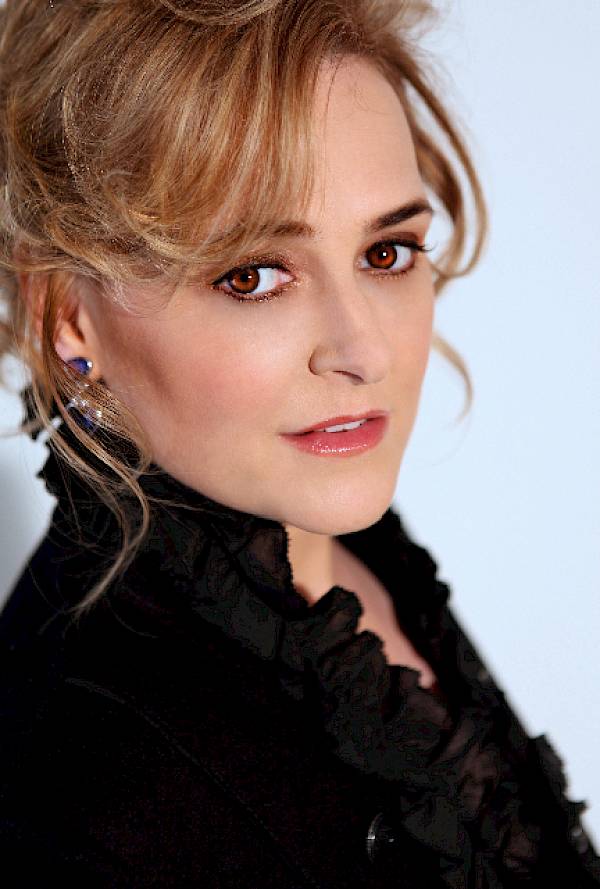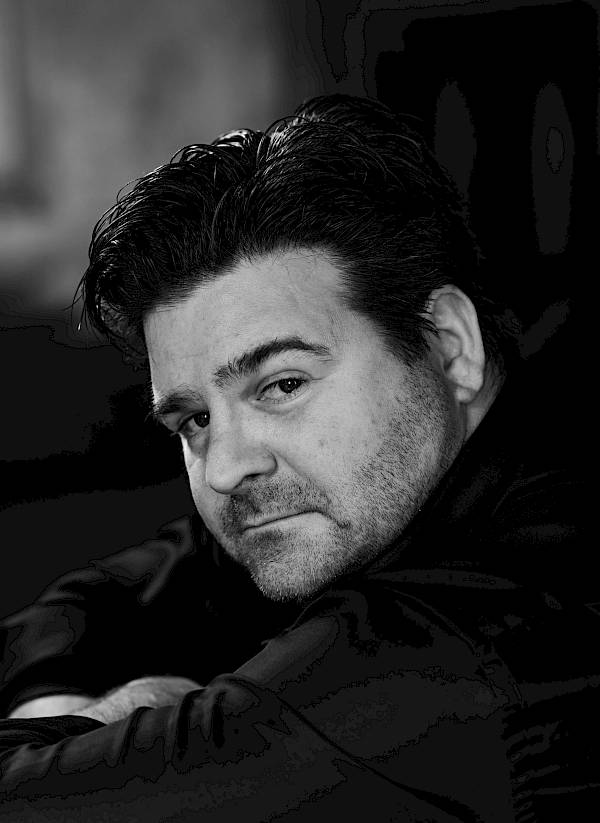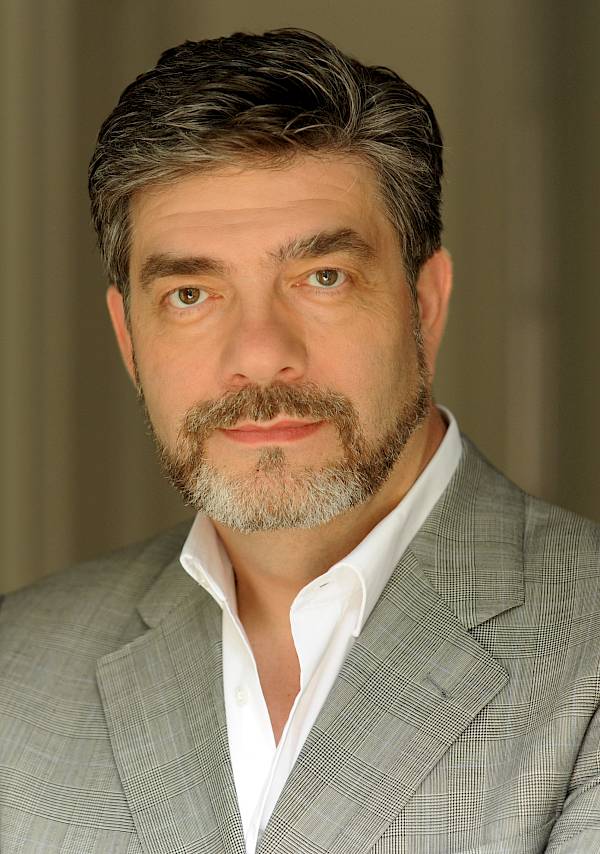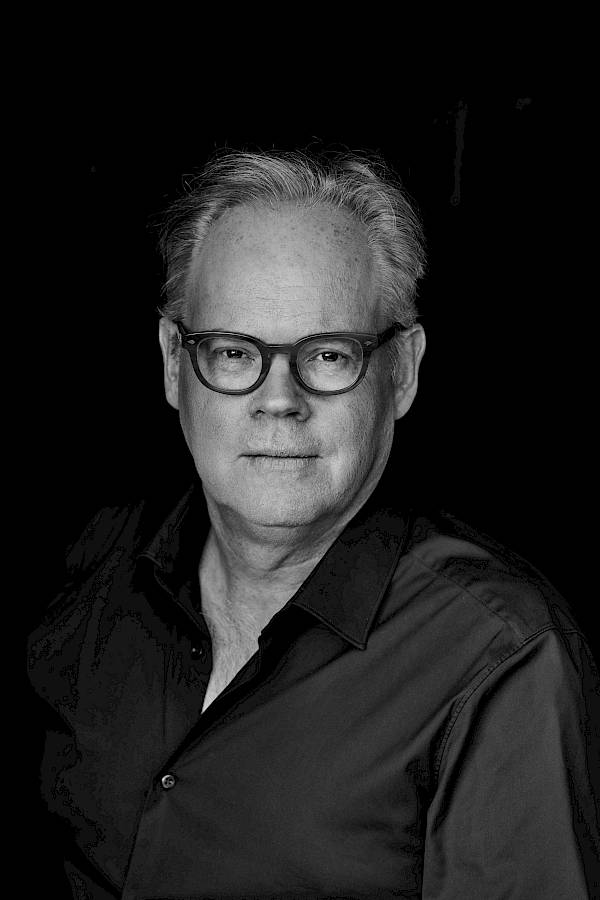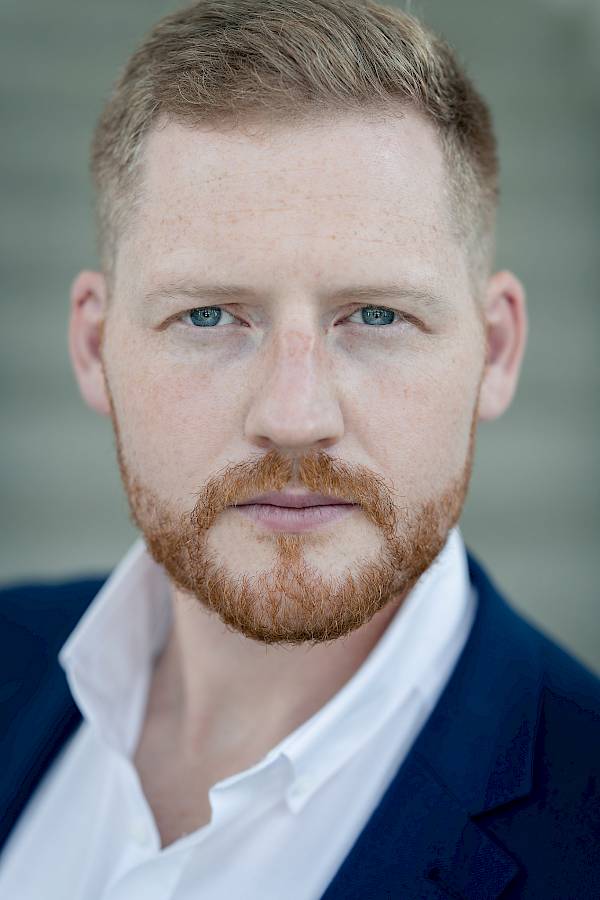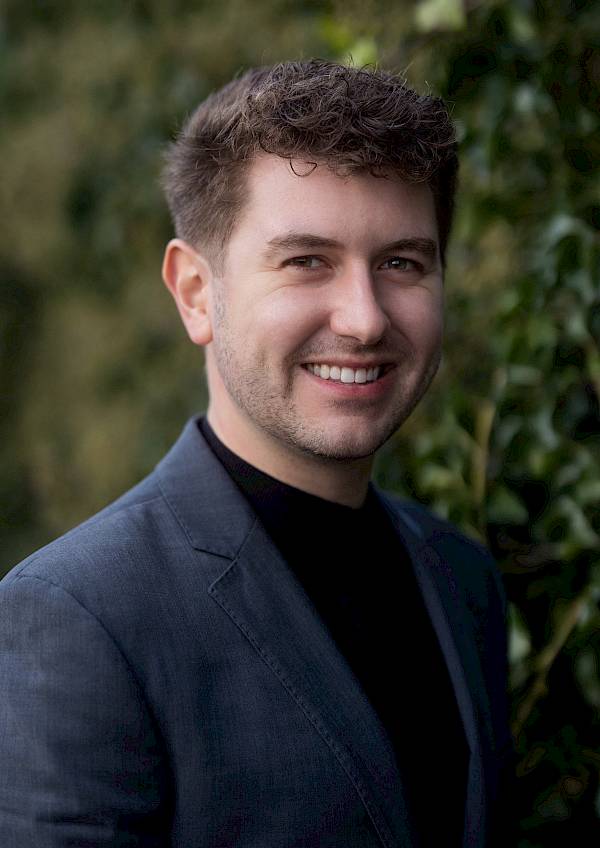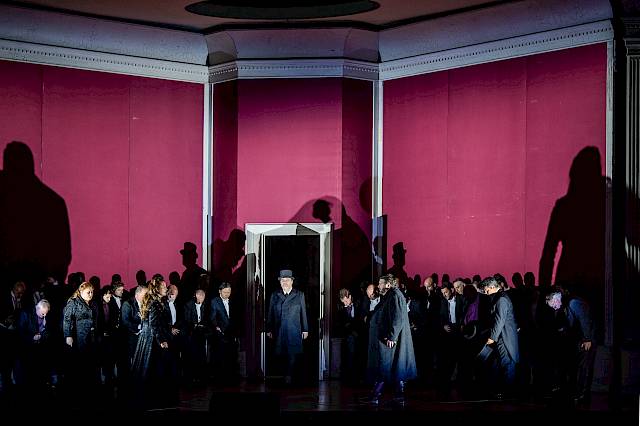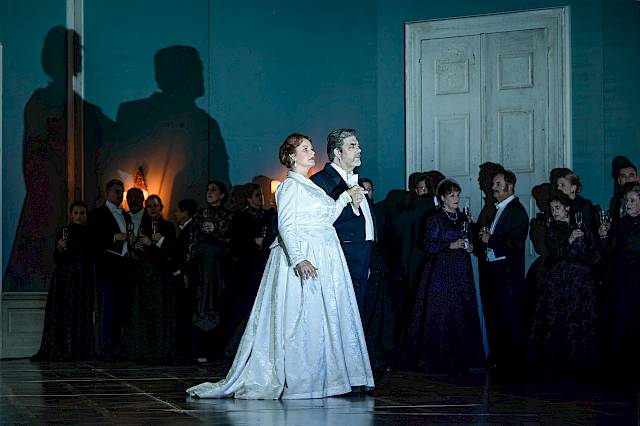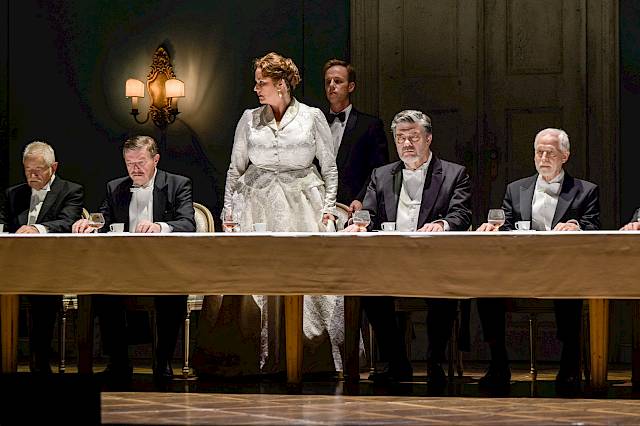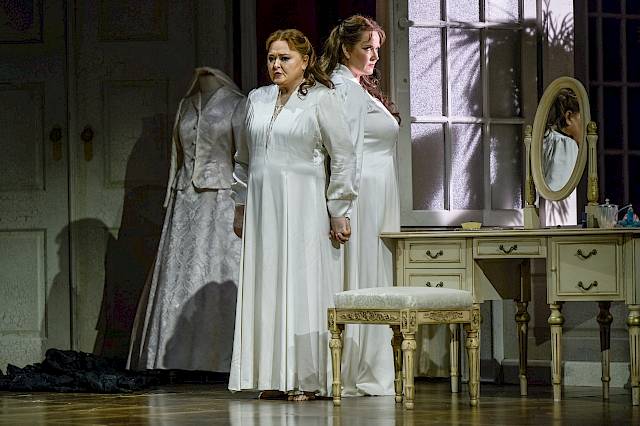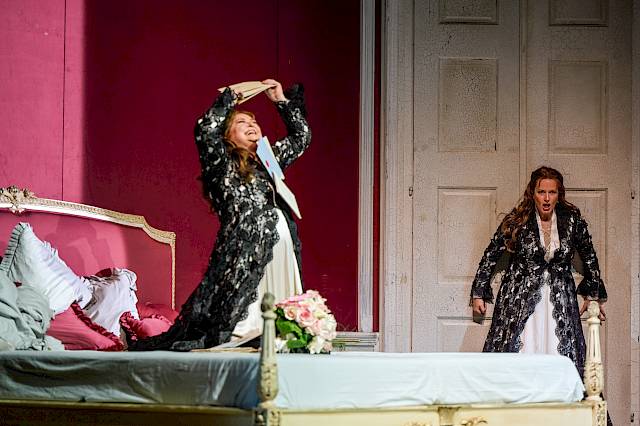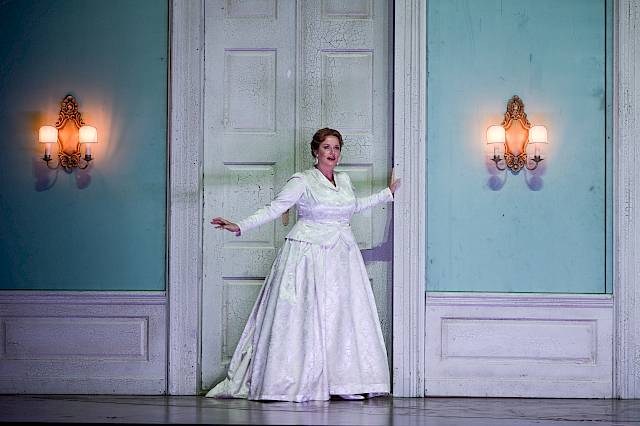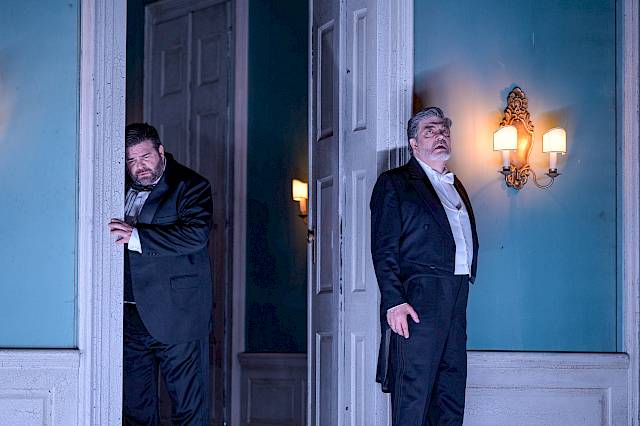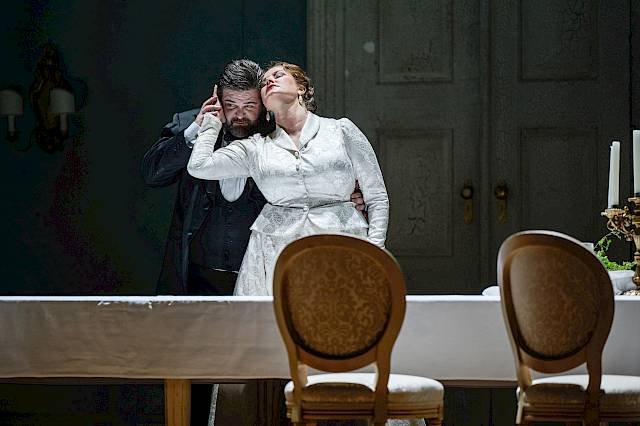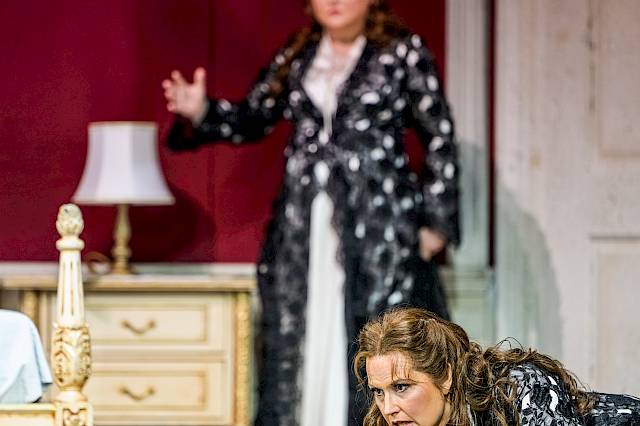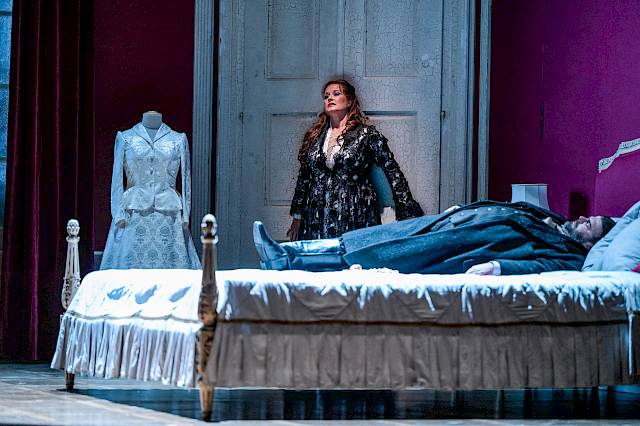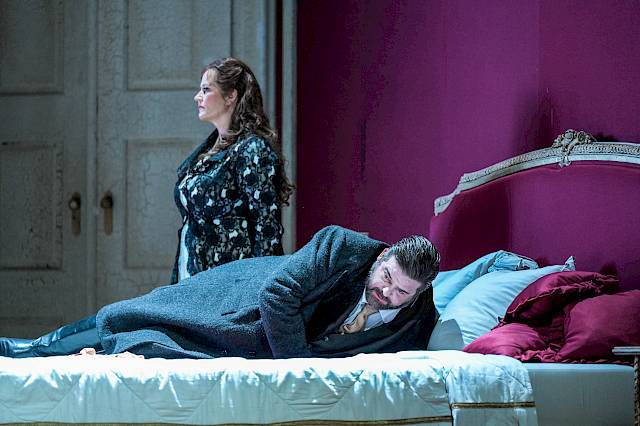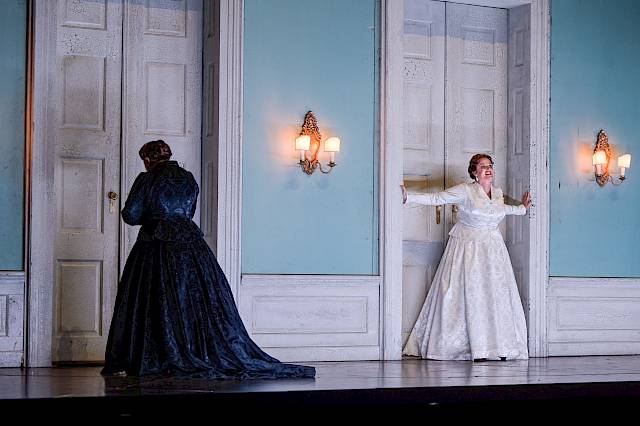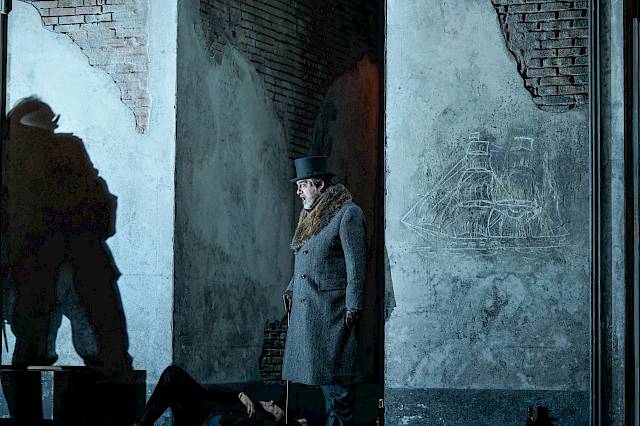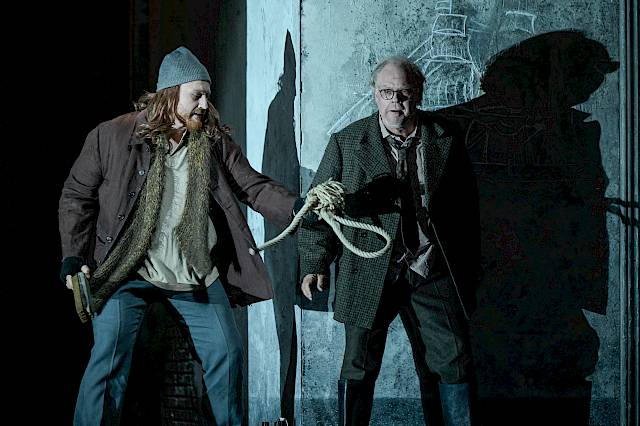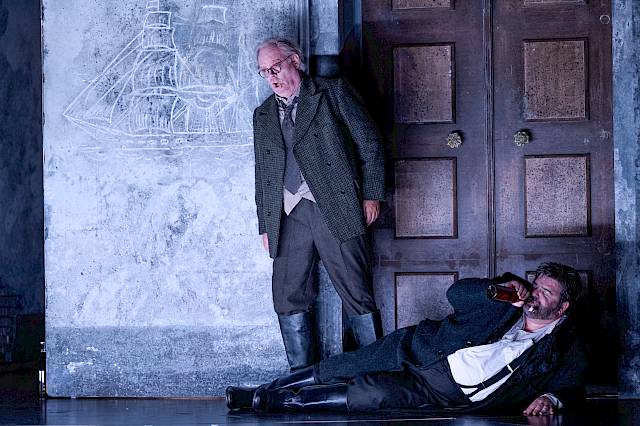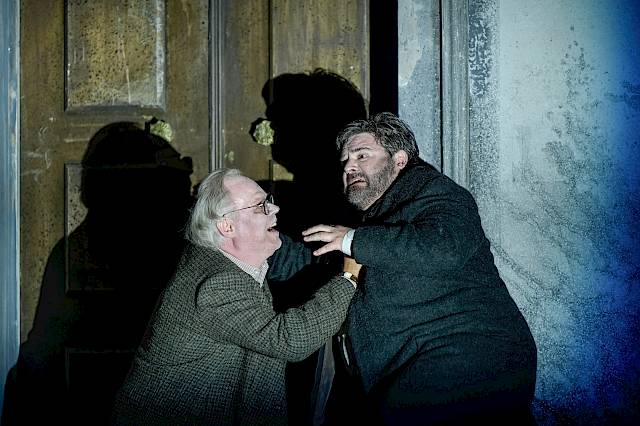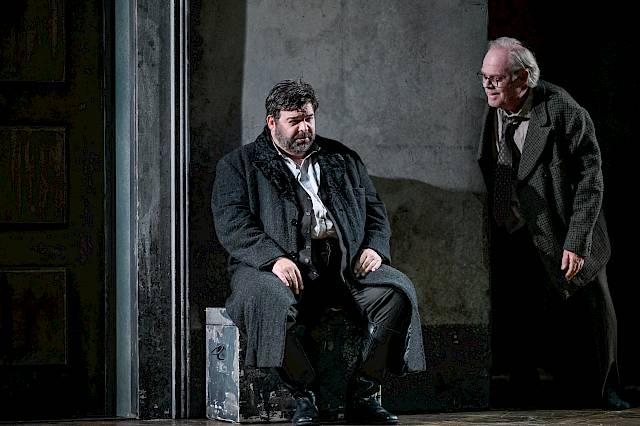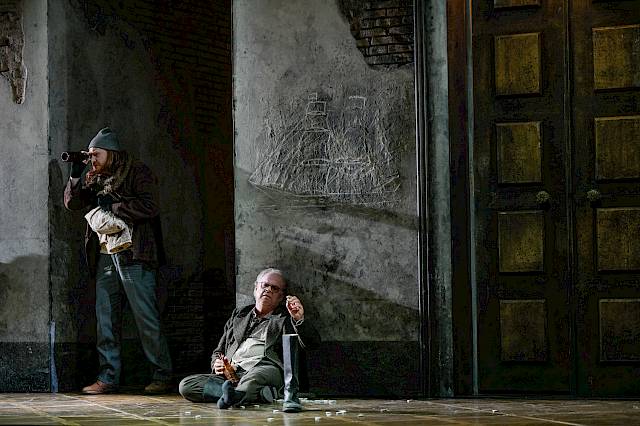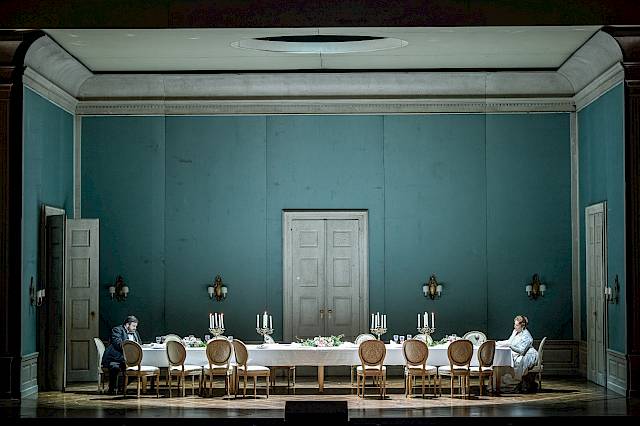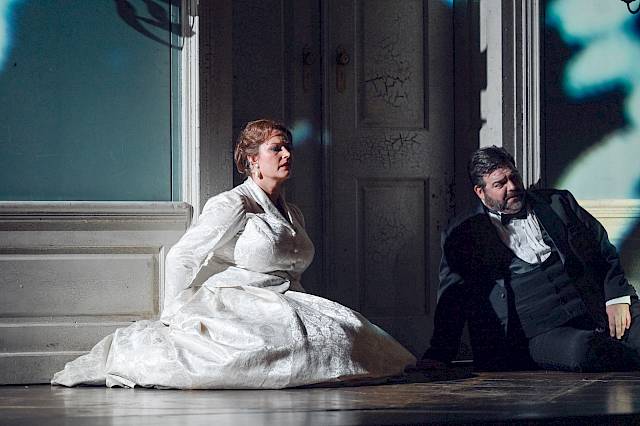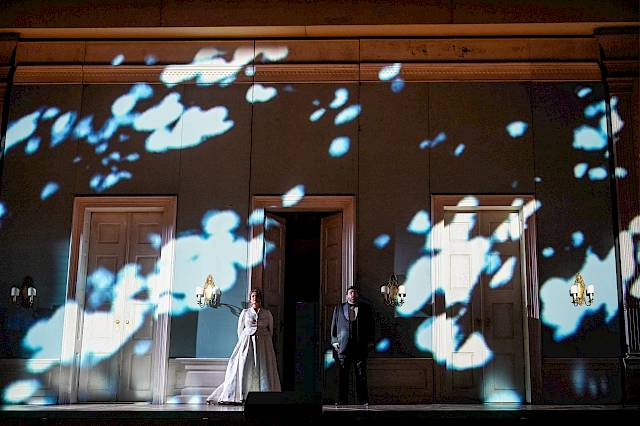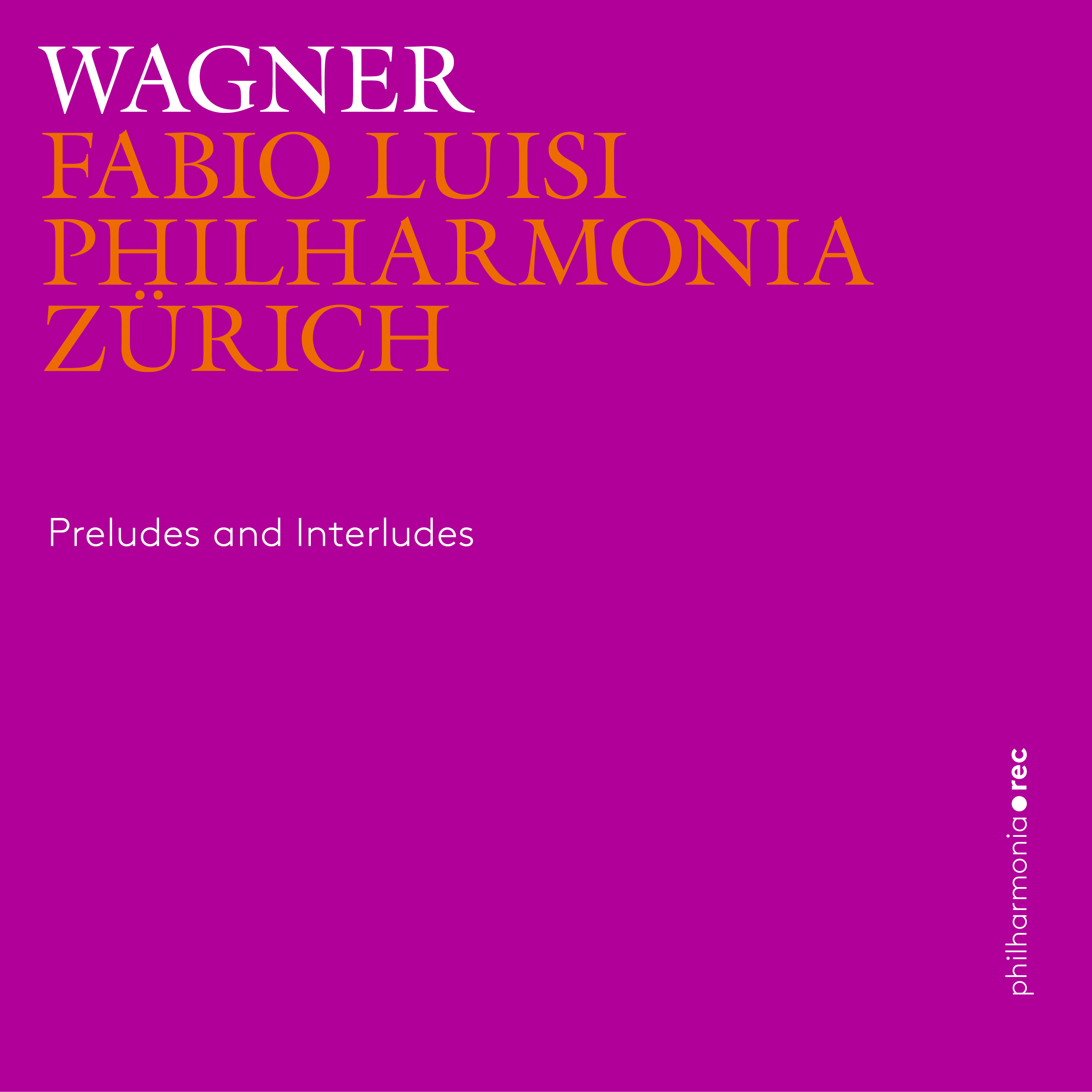Abstract
Tristan und Isolde, Wagner’s most radical work of music theater, is enduringly fascinating and disturbing in its uncompromising, boundary-breaking depiction of an obsessive, all-consuming, and all-encompassing love between two individuals that can only be resolved in death. Tristan und Isolde’s creation is fascinatingly connected to Richard Wagner’s time in Zurich – more precisely, with his relationship with Mathilde Wesendonck. She was his patron’s wife and his muse for this exceptional work, which would have a lasting influence on musical history. Claus Guth’s enthralling and psychologically sensitive production takes this extramarital passion as its point of departure. It was a desire that ran contrary to bourgeois morals of the time in which the opera was written. The characters move about in rooms that could have existed in the Villa Wesendonck. As the individual rooms become echo chambers and places of remembrance, everything that happens in them is but imagination, ardent longing, a fever dream. Yet the intimacy that this interpretation derives from Tristan frequently falters, suddenly transforming into claustrophobic social pressure that makes the lovers outsiders. Their only escape is death.
Camilla Nylund, who thrilled audiences in Zurich as Senta, will make her debut as Isolde in this revival. Joining her as Tristan is Swedish tenor Michael Weinius, who is developing an impressive career as a Wagner singer, as evidenced by his Siegfried at the Opéra de Génève in 2019. Gianandrea Noseda, who takes on the post of General Music Director at the Opernhaus Zürich with the 2021/22 season, will musically direct.


